tree in bud radiology assistant
Mar 25 2020 - Poster. Tree-in-bud appearance represents dilated and fluid-filled ie.
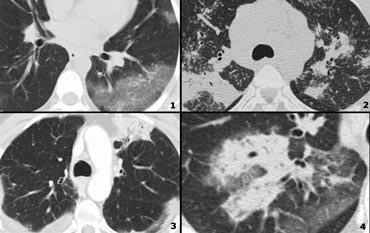
The Radiology Assistant Hrct Basic Interpretation
Despite atypical findings for COVID-19 pneumonia RT-PCR test was positive for COVID-19.

. Originally reported in cases of endobronchial spread of Mycobacterium tuberculosis this. Endobronchial spread of infection TB MAC any bacterial bronchopneumonia Airway disease associated with infection cystic fibrosis bronchiectasis less often an airway disease associated primarily with mucus retention allergic bronchopulmonary aspergillosis asthmaDiagnosis Radiology. In centrilobular nodules the recognition of tree-in-bud is of value for narrowing the differential diagnosis.
Abnormal tree-in-bud bronchioles can be distinguished from normal centrilobular bronchioles by their more irregular appearance lack of tapering or knobbybulbous appearance at the tip of their branches. Typical findings of BAC on HRCT include a solitary nodule or mass 43 focal or diffuse consolidation 30 or. Of these 182 cases were excluded for the following reasons.
Our Radiology Information System was searched for the term tree-in-bud from January 1 2010 to December 31 2010 iden-tifying 599 examinations. In conclusion the treeinbud pattern should be considered as a differential diagnosis for radiographic soft tissue opaque nodules in feline lungs. 78 indicating the absenceresolution of TIB opacities 26 incomplete thoracic CT scan studies 75 duplicate.
Tree-in-bud almost always indicates the presence of. 886 followed by GGA and consolidation n23. Its microbiologic significance has not been systematically evaluated.
Usually somewhat nodular in appearance the tree-in-bud pattern is generally most pronounced in the lung periphery and associated with abnormalities of the. The most frequently observed combination of abnormalities was GGA and bronchial wall thickening n31. A 50 years old lady presented with fever productive cough and occasional haemoptysis for two weeks.
The tree-in-bud appearance may occur in case of distal airway diseases in bacterial viral and fungal infections in some congenital diseases for example cystic fibrosis in some idiopathic. It represents dilated and impacted mucus or pus-filled centrilobular bronchioles. 31 March 2013.
CT tree-in-bud is most commonly reported in peripheral airways disease related to an infectious etiology. Revision received and accepted May 22 2000. Tree in bud radiology assistant.
Tree-in-bud TIB is a radiologic pattern seen on high-resolution chest CT reflecting bronchiolar mucoid impaction occasionally with additional involvement of adjacent alveoli. Tree in bud opacification refers to a sign on chest CT where small centrilobular nodules and corresponding small branches simulate the appearance of the end of a branch belonging to a tree that is in bud. Tree exactly opposite to the southwest entrance door is not at all menace.
Another important entity that can produce the tree-in-bud pattern is bronchioalveolar carcinoma BAC 1. Of Medicine Medical College 88 College Street Kolkata 700 073. It consists of small centrilobular nodules of soft-tissue attenuation connected to multiple branching linear structures of similar caliber that originate from a single stalk.
She also had generalized weakness and shortness of breath for same duration. To make it even worse it was bordering on my neighbor s lot and the old man who lived there was even more superstitious than most. Thin section CT shows peribronchial thickening and centrilobular nodules with tree in bud appearance.
Dishes are a symbol of a familys welfare. The tree-in-bud appearance characterised by well-defined centrilobular nodules was observed in 1 29 patient. Intravascular filling eg.
1 From the Department of Radiology University of Vienna Waehringer Guertel 18-20 A-1090 Vienna Austria. The tree-in-bud pattern is commonly seen at thin-section computed tomography CT of the lungs. Revision requested December 10.
Pus mucus or inflammatory exudate centrilobular bronchioles. 657 and bronchial wall thickening and consolidation n22. We aimed to establish the incidence of the TIB pattern as a proportion of all patients undergoing chest CT.
Address correspondence to the author e-mail. Differential diagnosis is broad which includes different etiologies. The identification of pulmonary vascular tree-in-bud in COVID-19 is unique and interesting.
Trees in front of the inclined houses. Tree-in-bud describes the appearance of an irregular and often nodular branching structure most easily identified in the lung periphery. The remaining pulmonary parenchyma demonstrated scattered tree-in-bud pattern with lower lobe predominance and without pleural effusion.
ECR 2014 C-1769 Classic Signs in Thoracic Radiology by. Tree-in-bud pattern and poorly defined nodules representing bronchiolar filling. Primary pulmonary lymphoma or leukemia 247.
Originally and still often thought to be specific to endobronchial Tb the sign is actually non-specific and is the. 3 found that the tree-in-bud pattern was seen in 256 of the CT scans in patients with bronchiectasis. CTHRCT high-resolution-CT showed extensive bronchiectasis along with parenchymal disruption in the right upper lobe.
The patient had an oesophageal lesion below the carina extending longitudinally 6 cm. The Tree-in-Bud Sign. Based on lesion localization and presence or suspicion of a concomitant bronchial disease for cats in this sample authors propose that the CT treeinbud pattern described in.
Received November 11 1999. With foreign material or tumor emboli may result in a tree-in-bud pattern. 1 refers to a pattern seen on thin-section chest CT in which centrilobular bronchial dilatation and filling by mucus pus or fluid resembles a budding tree Fig.

Tree In Bud In Centrilobular Nodules The Recognition Grepmed

A And B Axial Hrct Cuts Shows Centrilobular Nodules With Tree In Download Scientific Diagram
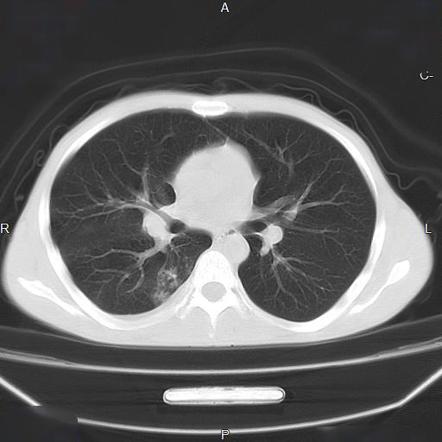
Tree In Bud Sign Lung Radiology Reference Article Radiopaedia Org

The Radiology Assistant Hrct Common Diagnoses

Centrilobular Lung Nodules Radiology Reference Article Radiopaedia Org
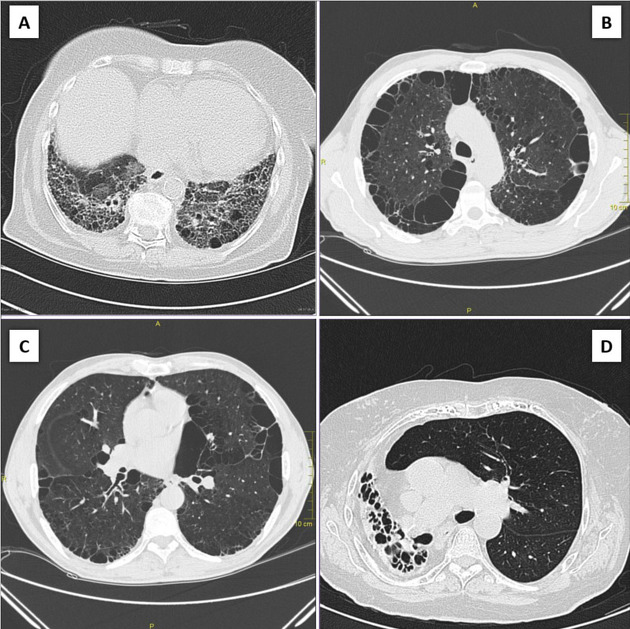
Honeycombing Lungs Radiology Reference Article Radiopaedia Org

A Case Of Myelofibrosis With Anc Of 200 µl Hrct Chest Shows Multiple Download Scientific Diagram
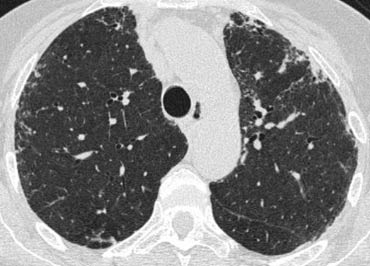
The Radiology Assistant Hrct Basic Interpretation
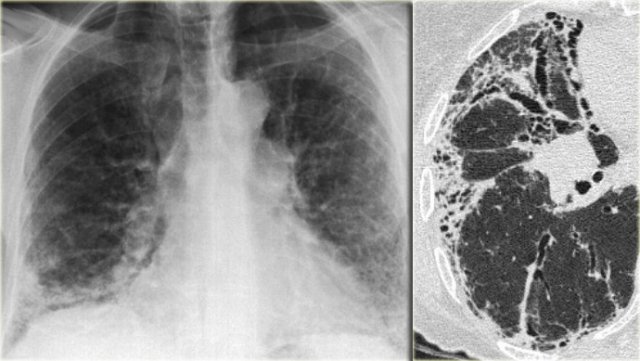
The Radiology Assistant Hrct Common Diagnoses
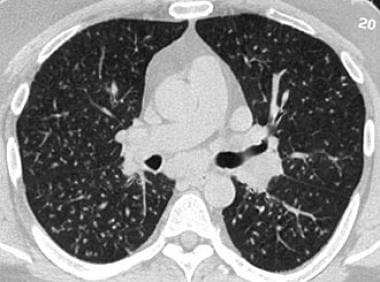
Postprimary Tuberculosis Lung Imaging
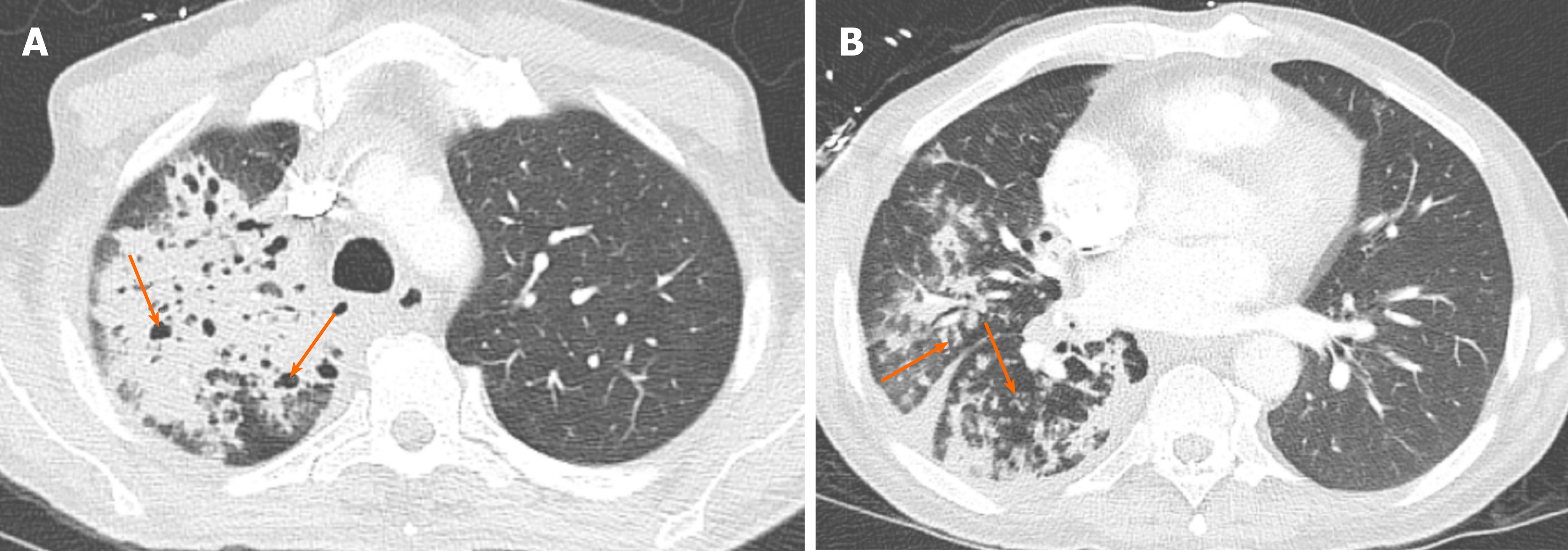
Chronic Airspace Disease Review Of The Causes And Key Computed Tomography Findings
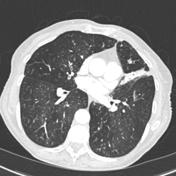
Tree In Bud Sign Lung Radiology Reference Article Radiopaedia Org
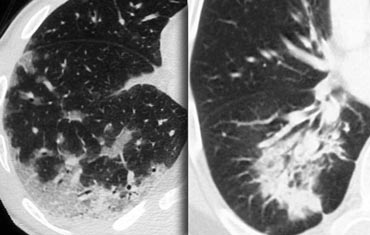
The Radiology Assistant Hrct Basic Interpretation
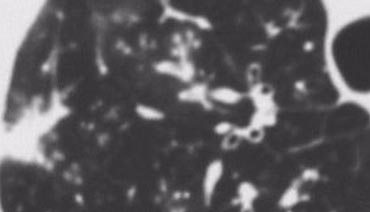
The Radiology Assistant Hrct Basic Interpretation

Tree In Bud Almost Always Indicates The Presence Of Endobronchial Grepmed

Learningradiology Lung Abscess Pulmonary Lunges Pulmonary X Ray
